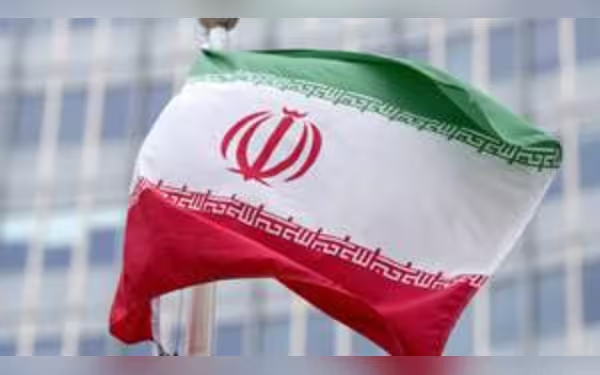Sunday, December 22, 2024 08:15 PM
Western Powers Express Concern Over Iran's Nuclear Centrifuge Expansion
- Western nations condemn Iran's new centrifuge plans.
- IAEA urges Iran to comply with nuclear obligations.
- Iran's nuclear program raises international skepticism.
 Image Credits: nation_pk
Image Credits: nation_pkWestern powers express serious concern over Iran's announcement to expand its nuclear centrifuge program, urging compliance with international obligations.
In recent developments, the United States, Britain, France, and Germany have raised significant concerns regarding Iran's nuclear ambitions. The focus of their apprehension is Iran's announcement to initiate a series of new centrifuges, which are crucial for enriching uranium. This announcement comes on the heels of a censure motion brought against Iran by these four Western powers at the International Atomic Energy Agency (IAEA), a body responsible for monitoring nuclear activities worldwide.
The IAEA resolution, adopted just days ago, highlights the urgency for Iran to comply with its legal obligations under the Non-Proliferation Treaty (NPT). This treaty, ratified in 1970, aims to prevent the spread of nuclear weapons and promote peaceful uses of nuclear energy. The Western nations expressed their dismay that, instead of cooperating with the IAEA, Iran has chosen to expand its nuclear program, which they believe lacks a credible peaceful rationale.
In a joint statement, the four nations emphasized, "We note with serious concern Iran’s announcement... that, instead of responding to the resolution with cooperation, it plans to respond with further expansion of its nuclear program in ways that have no credible peaceful rationale." They urged Iran to reengage in dialogue and cooperation with the IAEA, stressing the importance of transparency in nuclear activities.
Iran's plans include launching a "significant series of new and advanced centrifuges of various types." These centrifuges are essential for enriching uranium, a process that can lead to the development of nuclear weapons if not monitored properly. However, Iran maintains that its nuclear program is solely for peaceful purposes, a claim that has been met with skepticism from the international community.
Behrouz Kamalvandi, a spokesman for Iran’s atomic energy organization, stated that the new measures primarily focus on uranium enrichment. This has heightened tensions, as critics fear that Iran is inching closer to developing a nuclear weapon, a claim that the Islamic Republic has consistently denied.
The IAEA resolution also calls for Iran to provide "technically credible explanations" for the presence of uranium particles found at two undeclared locations within its borders. Furthermore, the Western powers are demanding a comprehensive report from the IAEA on Iran’s nuclear efforts by spring 2025 at the latest. They expressed hope that Iran would take this opportunity to provide the necessary information and cooperation to resolve ongoing issues.
As the situation unfolds, it is clear that the stakes are high. The international community is watching closely, and the actions taken by Iran in the coming months will be crucial. The hope remains that through dialogue and cooperation, a peaceful resolution can be achieved, ensuring that Iran's nuclear program remains exclusively peaceful. The world is at a crossroads, and the choices made now will have lasting implications for global security and stability.













